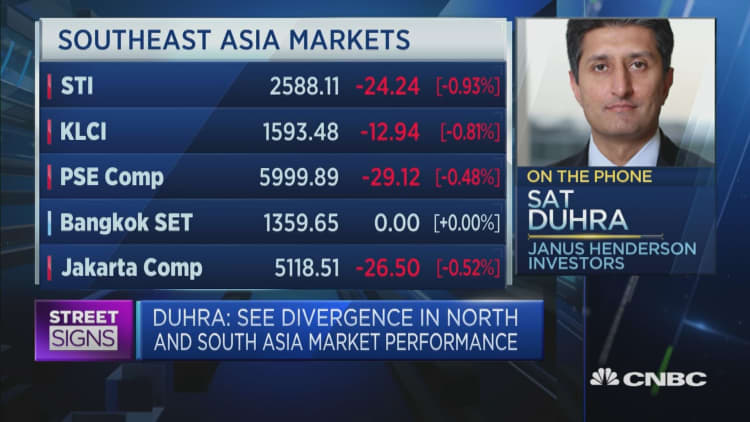
The economic impact of the coronavirus matters more for the markets than the bilateral tensions between the U.S. and China, a portfolio manager said on Friday.
The relationship between the world's top two economies have taken a dramatic turn for the worse since Wednesday, when the U.S. ordered the closure of a Chinese consulate in Houston.
But, the heightened tensions are "not a huge surprise; we've seen this kind of a dive in sentiment for some months now," said Sat Duhra, portfolio manager of Asia dividend income strategy at Janus Henderson Investors. He said he expects more of such rhetoric ahead of the U.S. presidential election in November.
Duhra made his comments before China ordered the U.S. to close its consulate in Chengdu.
"The thing that will really impact markets more is going to be response to the virus, I think that has a much greater economic impact in the short term than anything we hear from both sides of this (political) issue," Duhra told CNBC's "Street Signs Asia."
Still, Janus Henderson Investors kept current U.S.-China tensions in mind while picking investments.
"Ever since we saw the beginning of this supposed trade war, we've been very careful about not owning Chinese exporters, or Chinese industrials, energy, those kind of companies," said Duhra.
But companies catering to the domestic Chinese market have been doing well, he said, without naming specific companies.
"Since the outbreak of the trade war, you've seen domestic consumption and domestic infrastructure names performing very well. These are the kind of names that we hold, we still think they will do well even in this kind of environment," he added.
As the Chinese government is leading a drive toward self-sufficiency, such companies will do well even amid political tensions with the U.S., he said.
"Ultimately, if you are buying companies that sell Chinese products and services made by the Chinese, for the Chinese, then they behave very differently," he said.

